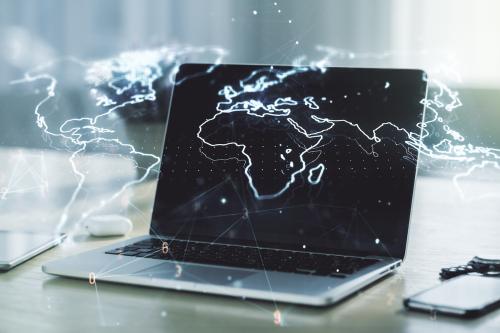On the heels of the U.N.’s adoption in late September of the Sustainable Development Goals (SDGs) for 2030, an Asia Pacific volunteering alliance recently convened a forum for hundreds of youth and development partners from northeast Asia at the Korea Council on Foreign Relations in Seoul.
In his keynote address highlighting the role of volunteers in global development, Young-Mok Kim, president of the Korean International Cooperation Agency (KOICA), stressed the key role of Peace Corps volunteers and the Saemaul Undong village self-help model in Korea’s 50-year rise from a low-income to a high-income nation.
Since 1970, Korea’s Saemaul Undong (“New Community Movement”) has tested a combination of local self-help cooperative action with national development policy addressing poverty, relying on the spirit of rural communities. Local volunteering teams engaging youth and women have been tapped to guide and implement grassroots development projects and counter rural over-migration to urban areas, engaging in housing, local infrastructure and irrigation, credit unions, and cooperative businesses, among other holistic areas while enhancing an overall community spirit of ownership.
“As the first country to escape poverty and achieve economic and social development as well as democratization, the SDGs present us with an opportunity to expand our footprint and visibility in the development arena and live up to international expectations. In Korea, thanks to Saemaul Undong, the poverty rate was reduced from 34.6 percent to 6 percent and rural households’ income reached parity with that of urban households during the period from 1967 to 1984.” The Saemaul Undong model has been adapted in African and other developing nations and was featured in a special high-level forum on rural development during the recent U.N. General Assembly.
Kim stated: “It is important that we facilitate participatory engagement by harnessing the power of volunteerism to meet the key principle of the SDGs” and he indicated that the World Friends Korea (WFK) volunteer program learned from the nation’s experience with the Peace Corps. WFK has sent more than 50,000 volunteers abroad in service projects and to provide technical training. Kim noted KOICA ranks second in the world with regard to the number of volunteers sent to developing countries, sending 4,500 annually to 50 countries.
KOICA was a founding participant in the Asia Pacific Peace and Development Service Alliance (APPDSA) that was launched at the U.N. Economic and Social Commission for Asia and the Pacific (ESCAP) headquarters in Bangkok in October 2014 with the support of FK Norway, the Global Peace Foundation, KOICA, the Peace Corps and other partners. Kim hailed the effort “to form an alliance of upgrading our volunteer program and fostering the force of young people who can play crucial roles in the development cooperation arena.”
The multi-stakeholder platform forged in Southeast Asia is now engaging thousands of volunteers in climate-related projects, including massive river clean-up campaigns in Thailand and Nepal and ongoing “green Asia” tree-planting and eco-camps working to address desertification in Mongolia.
After the Seoul convening, which launched the Northeast Asia volunteering initiative, I travelled to Kathmandu to assess the progress of the South Asia APPDSA Alliance hub for volunteerism. Convened in Nepal just prior to the April earthquake that took more than 9,000 lives, the Alliance’s South Asia convening provided a ready base of volunteers to implement the Kathmandu Call to Action after the disaster struck and served as a springboard for Rise Nepal, a youth-led relief and rebuilding initiative. To date, more than 1,600 young Nepali volunteers have helped nearly 3,000 households with emergency provisions, including food, and medical and hygiene supplies, and have constructed around 600 transitional homes.
IBM stepped in to provide IT support, equipping youths with software and other technology to facilitate their efforts to rebuild their nation beyond short-term earthquake relief. Since the recent adoption of Nepal’s new constitution, this support is being broadened to include young leadership training in citizenship and service addressing longer-term goals, including SDGs across the South Asia region.
A recent Gallup article noted the power of the more than 1 billion people around the world who engage in volunteer service and the need to marshal their efforts to help countries meet their SDG targets by 2030. Since the Seoul forum, efforts are underway across the Asia-Pacific region to step-up specific volunteerism initiatives, provide technology that will further empower young volunteers, and document the results of ongoing environmental service projects such as the restoration of the Bagmati River in Nepal and counterpart efforts in Bangkok, Mongolia, and the Philippines.
The growth of such multi-stakeholder volunteering alliances, coupled with KOICA’s experience in forging volunteerism-based community outcomes measurably addressing poverty, hold great promise in marshaling requisite human capital and innovation to help achieve the next generation development goals.



Commentary
The power of volunteers for development, from Seoul to Kathmandu
November 9, 2015